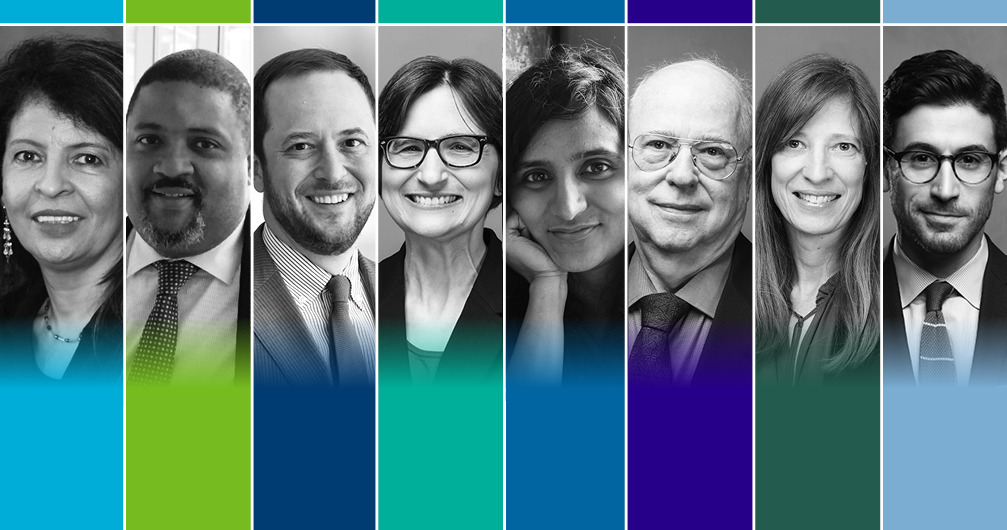#MeToo on the Global Stage
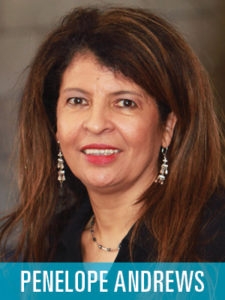 “What, ultimately, is the meaning of #MeToo in the U.S.A. and many societies across the globe, especially in South Africa? How will this movement expand and grow—and comprehensively confront widespread sexual harassment and institutionalized violence against women? Might #MeToo shift the goalposts of discourse and behavioral expectations between men and women regarding appropriate sexual conduct and sexual etiquette? In attempting to grapple with these questions, the book pursues several topics, including the contemporary legal and political space of #MeToo; #MeToo and feminism; #MeToo in the context of transnational movements for gender equality, especially intersections and divergences; and other topics.”
“What, ultimately, is the meaning of #MeToo in the U.S.A. and many societies across the globe, especially in South Africa? How will this movement expand and grow—and comprehensively confront widespread sexual harassment and institutionalized violence against women? Might #MeToo shift the goalposts of discourse and behavioral expectations between men and women regarding appropriate sexual conduct and sexual etiquette? In attempting to grapple with these questions, the book pursues several topics, including the contemporary legal and political space of #MeToo; #MeToo and feminism; #MeToo in the context of transnational movements for gender equality, especially intersections and divergences; and other topics.”
–“Indigenizing #MeToo: A South African Perspective” by Penelope Andrews, an article presented at the 11th Feminist Legal Theory Conference and now a book-in-progress, The #MeToo Moment: A Global, Inclusive and Sustainable Movement for Gender Equality or a Missed Opportunity?
Access to Police Records
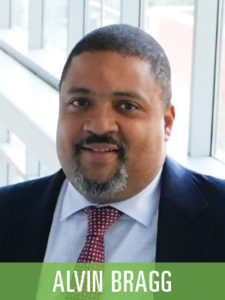 “To achieve a criminal justice system that inspires trust in all communities and works for all of us, we need to increase fairness, accountability and transparency. But while states across the country have opened access to a range of police files, New York remains one of the most secretive in the country. The time has come for the Legislature to repeal state Civil Rights Law Section 50-a, the statute that governs public disclosure of police personnel records. Under a recent decision by the state’s top court (New York Civil Liberties Union vs. NYPD), the statute will now serve as a roadblock to almost all public disclosure of civilian complaints.”
“To achieve a criminal justice system that inspires trust in all communities and works for all of us, we need to increase fairness, accountability and transparency. But while states across the country have opened access to a range of police files, New York remains one of the most secretive in the country. The time has come for the Legislature to repeal state Civil Rights Law Section 50-a, the statute that governs public disclosure of police personnel records. Under a recent decision by the state’s top court (New York Civil Liberties Union vs. NYPD), the statute will now serve as a roadblock to almost all public disclosure of civilian complaints.”
–“Police Discipline: Turn on the Lights” by Alvin Bragg in the New York Daily News
Editor's Note: In June 2019, Professor Bragg announced his campaign for Manhattan District Attorney.
The Epic Nature of Our Constitution
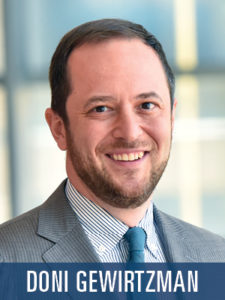 “ ... Our Constitution operates on a time horizon well beyond the lifespan of a single person or political movement. It’s epic in nature, a multigenerational saga like The Godfatheror The Joy Luck Club. When the Constitution’s preamble stakes a claim to ‘posterity,’ it envisions legal rules that are built to last for the long haul. ... When antebellum abolitionist William Lloyd Garrison called the Constitution ‘a covenant with death’ and ‘an agreement with hell’ for its endorsement of human chattel slavery, or when Justice John Marshall Harlan used his lone dissent in Plessy v. Ferguson(1896) to claim that constitutional decisions teach us right from wrong, they are talking about a document that reinforces and perpetuates belief systems that last for generations.”
“ ... Our Constitution operates on a time horizon well beyond the lifespan of a single person or political movement. It’s epic in nature, a multigenerational saga like The Godfatheror The Joy Luck Club. When the Constitution’s preamble stakes a claim to ‘posterity,’ it envisions legal rules that are built to last for the long haul. ... When antebellum abolitionist William Lloyd Garrison called the Constitution ‘a covenant with death’ and ‘an agreement with hell’ for its endorsement of human chattel slavery, or when Justice John Marshall Harlan used his lone dissent in Plessy v. Ferguson(1896) to claim that constitutional decisions teach us right from wrong, they are talking about a document that reinforces and perpetuates belief systems that last for generations.”
–“What the Constitution Means to Us” by Doni Gewirtzman in Public Books
State Attorneys General and Transparency
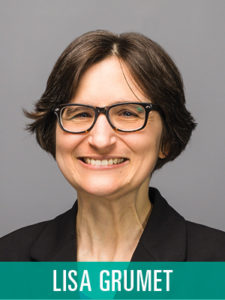
“Increasing partisanship in SAG [State Attorneys General] amicus briefs deserves new focus in light of another, more troubling phenomenon: SAGs taking positions in amicus briefs that may contradict their own states’ laws, without saying so. I call this phenomenon ‘hidden nondefense.’ ... ‘Nondefense’ occurs when a SAG declines to defend, or attacks, a law in the SAG’s state on the ground that it is unconstitutional. ‘Hidden’ nondefense occurs when the SAG takes a position in an amicus brief before the Supreme Court that may undermine a law in the SAG’s own state, without affirmatively disclosing this information to the court or the public. ... By appearing in front of the Supreme Court and attacking another state’s law, a SAG may seek and achieve results that could not be obtained politically within their own state.”
–“The need for transparency in state attorneys general amicus briefs” by Lisa Grumet in SCOTUSBlog
Immigrant-Owned Worker Cooperatives

“Worker cooperatives, businesses owned by the workers themselves, have taken root as a means of job opportunity for immigrant workers ... A worker cooperative is not a business form taught in most law school corporation courses. It is highly likely that the vast majority of transactional attorneys are unfamiliar with worker cooperatives. Further, representing cooperatives made up of immigrant workers is even more of a niche area of the law, requiring knowledge of corporate, tax, employment and immigration laws. While the number of lawyers for immigrant-owned cooperatives has been growing, there still exists a need for more lawyers with the type of knowledge, experience and sensitivity to take on the legal issues specific to working with [immigrant] cooperative members.”
–“Growing the Resistance: A Call to Action for Transactional Lawyers in the Era of Trump” by Gowri Krishna in the Tennessee Journal of Race, Gender, & Social Justice
An Influential Judge’s Legacy
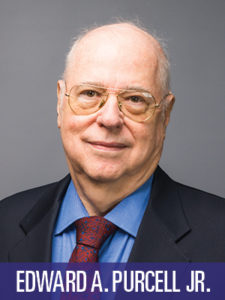 “The 100th anniversary of Judge Learned Hand’s opinion in Masses Publishing Co. v. Patten invites us to look back on its author’s long career and to consider his contributions to American law and his significance in the nation’s history. Spanning more than fifty years, from the presidency of William Howard Taft to the presidency of John F. Kennedy, Hand’s judicial career presents an exceptionally rich subject for such reflection. … In revealing ways, Hand’s life and activities track the course of the nation’s history through the first half of the twentieth century.”
“The 100th anniversary of Judge Learned Hand’s opinion in Masses Publishing Co. v. Patten invites us to look back on its author’s long career and to consider his contributions to American law and his significance in the nation’s history. Spanning more than fifty years, from the presidency of William Howard Taft to the presidency of John F. Kennedy, Hand’s judicial career presents an exceptionally rich subject for such reflection. … In revealing ways, Hand’s life and activities track the course of the nation’s history through the first half of the twentieth century.”
–“The Historical Significance of Judge Learned Hand: What Endures and Why?” by Edward A. Purcell Jr. in the Arizona State Law Journal
Prosecutors and Impeachment
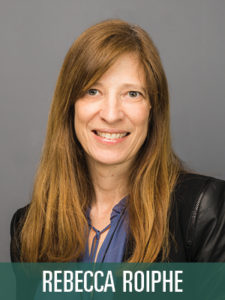 “The Constitution gives Congress the authority to hold the president accountable by impeaching him for treason, bribery, ‘high Crimes and Misdemeanors.’ Historically, this term has not been limited to or even defined by the penal code. It is a term of art that most historians believe denotes a serious abuse of power. By declining to determine whether or not [President Donald] Trump committed criminal obstruction, [Special Counsel Robert] Mueller left it to the constitutionally appropriate branch to decide whether the conduct outlined in his report amounted to such an abuse. But Congress cannot impeach and the American public cannot judge the president’s conduct without an accounting of the facts. So, the question remains, how to ensure that Congress can draw on the service of professional prosecutors to determine the facts necessary to carry out its constitutional obligation?”
“The Constitution gives Congress the authority to hold the president accountable by impeaching him for treason, bribery, ‘high Crimes and Misdemeanors.’ Historically, this term has not been limited to or even defined by the penal code. It is a term of art that most historians believe denotes a serious abuse of power. By declining to determine whether or not [President Donald] Trump committed criminal obstruction, [Special Counsel Robert] Mueller left it to the constitutionally appropriate branch to decide whether the conduct outlined in his report amounted to such an abuse. But Congress cannot impeach and the American public cannot judge the president’s conduct without an accounting of the facts. So, the question remains, how to ensure that Congress can draw on the service of professional prosecutors to determine the facts necessary to carry out its constitutional obligation?”
–“Barr Is Wrong: Mueller Was Dead Right on Trump and Obstruction” by Rebecca Roiphe in The Daily Beast
Privacy and LGBTQ Dating Apps
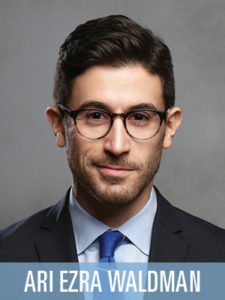 “Privacy over our sexual selves protects our dignity and autonomy. It allows us to speak our minds and maintain social relationships. But for queer people, privacy is uniquely important. Because employers in 29 states can fire workers simply for being gay or transgender, privacy with respect to our sexual orientations and gender identities protects our livelihoods. Privacy can also make us safer, especially with anti-queer hate crimes increasing. Privacy lets us both ‘come out’ in our own time and, once we do, live our best lives out and proud, and modest changes in design and in the law of platform liability can help us achieve and maintain the privacy we need to survive and thrive.”
“Privacy over our sexual selves protects our dignity and autonomy. It allows us to speak our minds and maintain social relationships. But for queer people, privacy is uniquely important. Because employers in 29 states can fire workers simply for being gay or transgender, privacy with respect to our sexual orientations and gender identities protects our livelihoods. Privacy can also make us safer, especially with anti-queer hate crimes increasing. Privacy lets us both ‘come out’ in our own time and, once we do, live our best lives out and proud, and modest changes in design and in the law of platform liability can help us achieve and maintain the privacy we need to survive and thrive.”
–“Queer Dating Apps Are Unsafe by Design” by Ari Ezra Waldman in The New York Times


